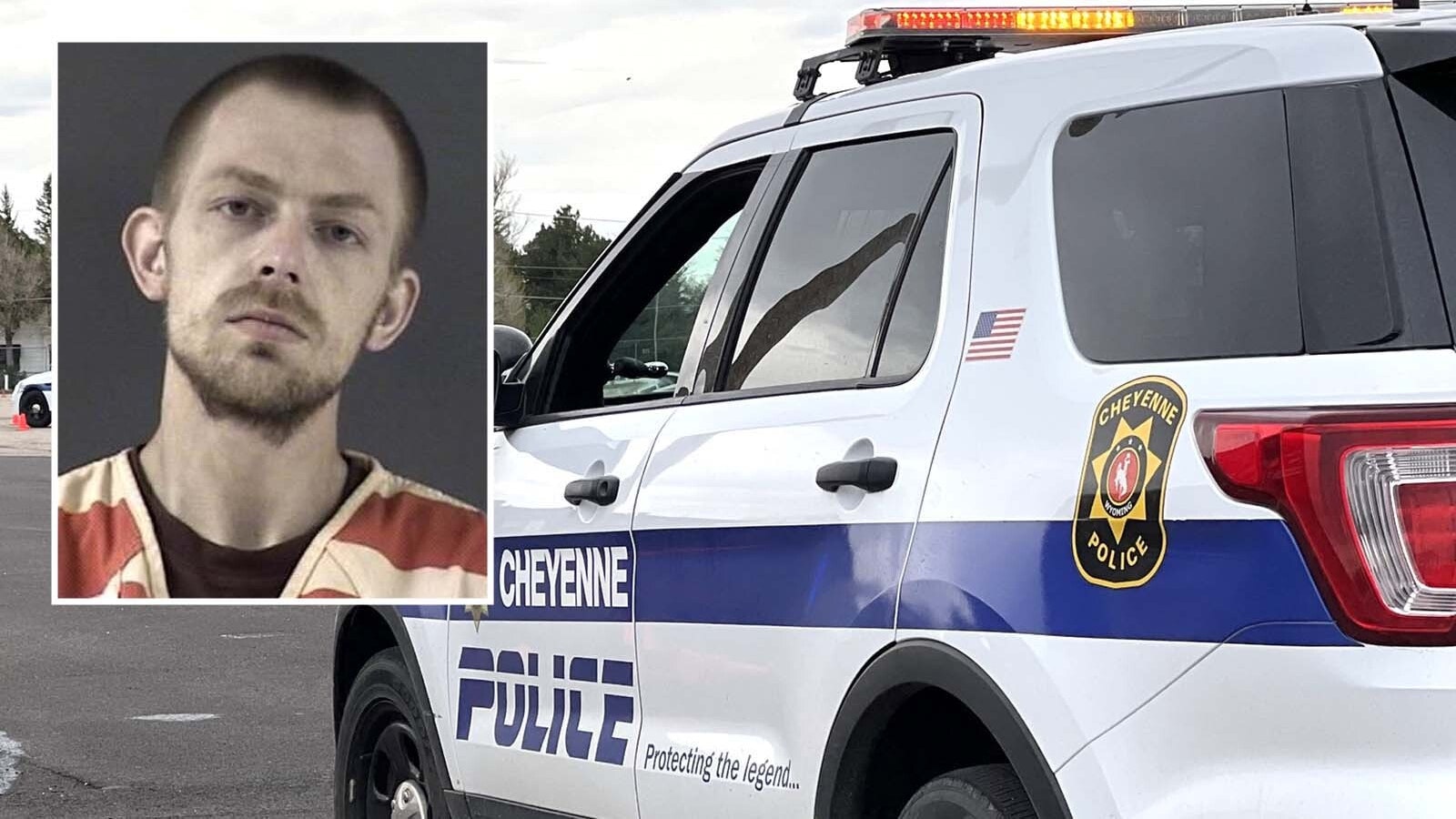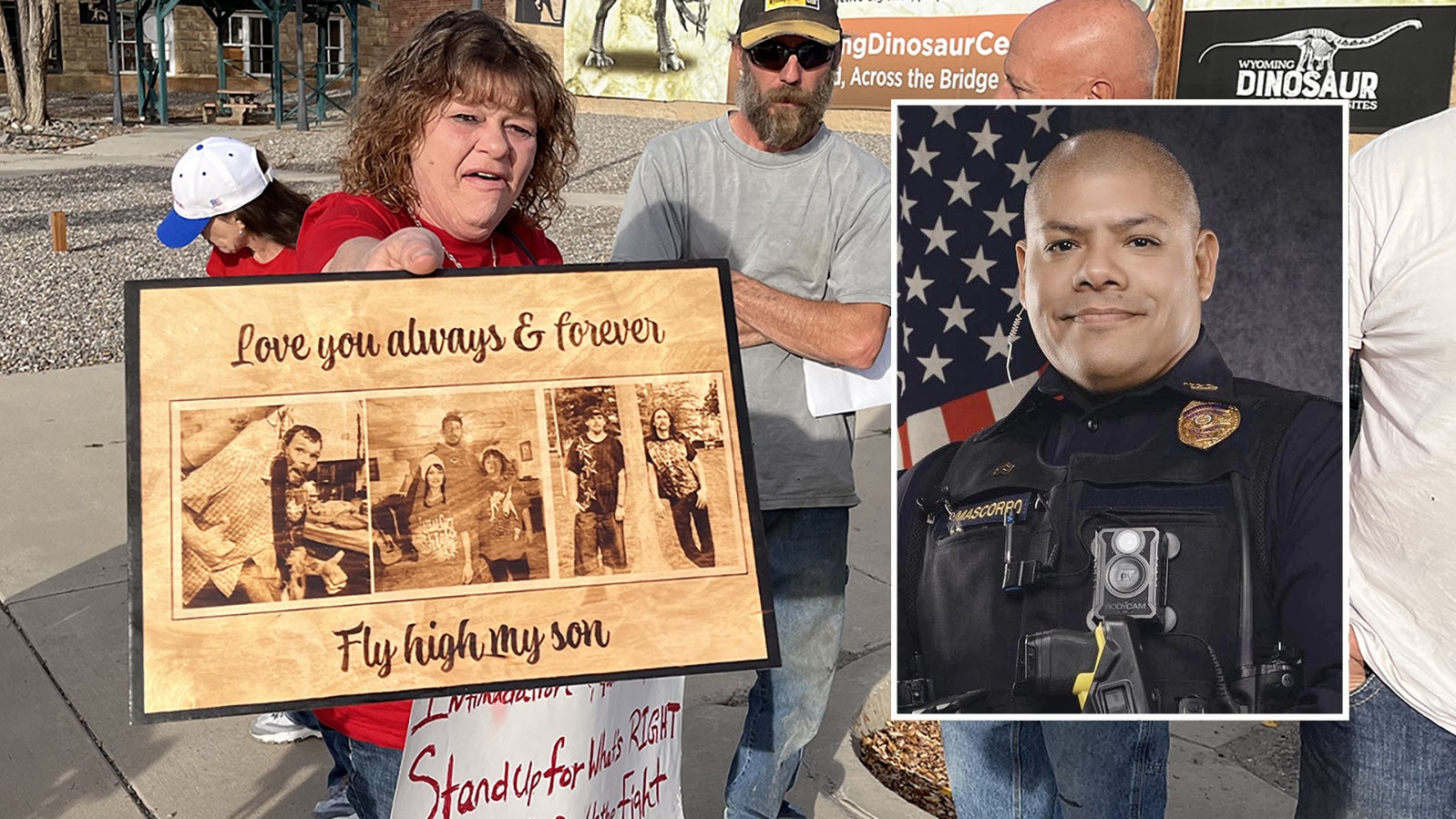A Cheyenne day care provider who caused a baby’s death by swaddling her for a nap when she was too old to be swaddled does not get a new trial despite her claims that her 2022 jury trial was unfair, the Wyoming Supreme Court ruled Tuesday.
Kristina Eileen Croy was found guilty of involuntary manslaughter in 2022 for the Sept. 25, 2019, death of an 8-month-old baby who’d been napping at the day care she operated in her home.
Croy put the baby down for a nap that day in a sleepsack with a swaddle attachment that wrapped around the baby’s torso and restrict her arms from moving.
When Croy checked on the baby the first time, she reportedly found that the infant was in an unfavorable position and repositioned her. When she checked on the baby again, she found the baby was not breathing and told her adult daughter to call 911. Paramedics rushed to the scene, tried to resuscitate the baby and failed. Hospital staffers also failed to resuscitate the baby, the high court’s order says.
The Laramie County Coroner ruled the baby died of positional asphyxia from being swaddled improperly. The prosecutor charged Croy with involuntary manslaughter.
After a jury convicted Croy, the judge sentenced her to five years of supervised probation, with the threat of between five and seven years in prison if she failed probation.
These Three Claims
In her appeal to the Wyoming Supreme Court, Croy challenged her conviction on three arguments.
She said the judge should have dismissed the jury’s verdict for lack of evidence.
She said the judge was wrong to dismiss a juror who had announced that the state failed to make its case against Croy.
She said the judge was wrong to let the prosecutor deliver a lengthy rebuttal argument after the defense attorney’s closing statement.
First, The Evidence
Croy argued that the prosecutor gave the jury insufficient evidence, because the state used a doctor’s expert opinion that was based on “double hearsay” – something Croy said to someone else that the doctor then learned about.
Croy’s day care licenser came to the hospital with Croy when personnel struggled to revive the baby.
Croy told her day care licenser about swaddling the baby, finding her in an unfavorable position and moving her, then checking on her again and finding her facedown and not breathing.
The prosecutor’s expert witness, Dr. Kelly Lear, based her opinion in part on these statements, which she did not hear from Croy firsthand, which makes them hearsay.
The Wyoming Supreme Court has recognized that experts can use hearsay when forming an opinion if it’s hearsay that on which other experts in that field also would have relied.
Lear also relied on other evidence besides the hearsay, such as camera footage of the baby in the sleepsack, a Department of Family Services prohibition on day care providers swaddling infants without a doctor’s note and another prohibition on swaddling babies who are old enough to roll over.
“Multiple witnesses testified swaddling an infant who can roll poses a danger of asphyxiation because the baby may suffocate if she rolls over with her arms restricted and cannot roll herself back over,” says the ruling. “Ms. Croy knew she should not be swaddling an infant who could roll.”
Goodbye, Sir
One evening during Croy’s trial, one of her jurors approached another juror in the parking lot and said he didn’t think the state had made its case against her, the ruling says.
Called into court to answer for breaking the rule of keeping an open mind until all the evidence was in the jury room for deliberation, the juror said he still could be open about the case.
But Laramie County District Court Judge Peter Froehlicher dismissed the juror and replaced him with one of the alternate jurors.
Not only had the juror expressed a conclusion about the case in violation of the open-mind rule, he also broke the rules by talking about the case one-on-one with another juror outside the deliberations room, the high court noted. It upheld Froehlicher’s decision.
This Rebuttal Was Long, But Not An Info-Bomb
Big Horn County Attorney Marcia Bean, who was appointed to prosecute Croy’s case, gave a terse closing statement which took up about three pages of the trial transcript. Her rebuttal after the defense’s argument filled 15 pages of the transcript.
Croy had asked Froelicher to split any closing statement time limits up so that Bean could not launch a longer argument during her rebuttal portion.
Freohlicher said 45 minutes should be enough for the state’s closing argument, but Bean could split her time between her main statement and her rebuttal however she wished.
Appeals courts can reverse convictions and make courts re-do unfair trials if a prosecutor was “sandbagging” and unfolding previously untouched argument in a rebuttal.
But Bean used her rebuttal – albeit at length – to respond to the defense attorney’s statements, not to launch new arguments, the high court concluded. Also, Croy didn’t object to the length or content of Bean’s rebuttal at the time or challenge Bean’s closing statement as insufficient.
“We cannot find the district court abused its discretion or deprived Ms. Croy of a fair trial when it declined her request to impose restrictions on how the State split its time between closing summation and rebuttal argument,” the high court ruled.
Croy’s conviction remains in place.
Clair McFarland can be reached at clair@cowboystatedaily.com.





